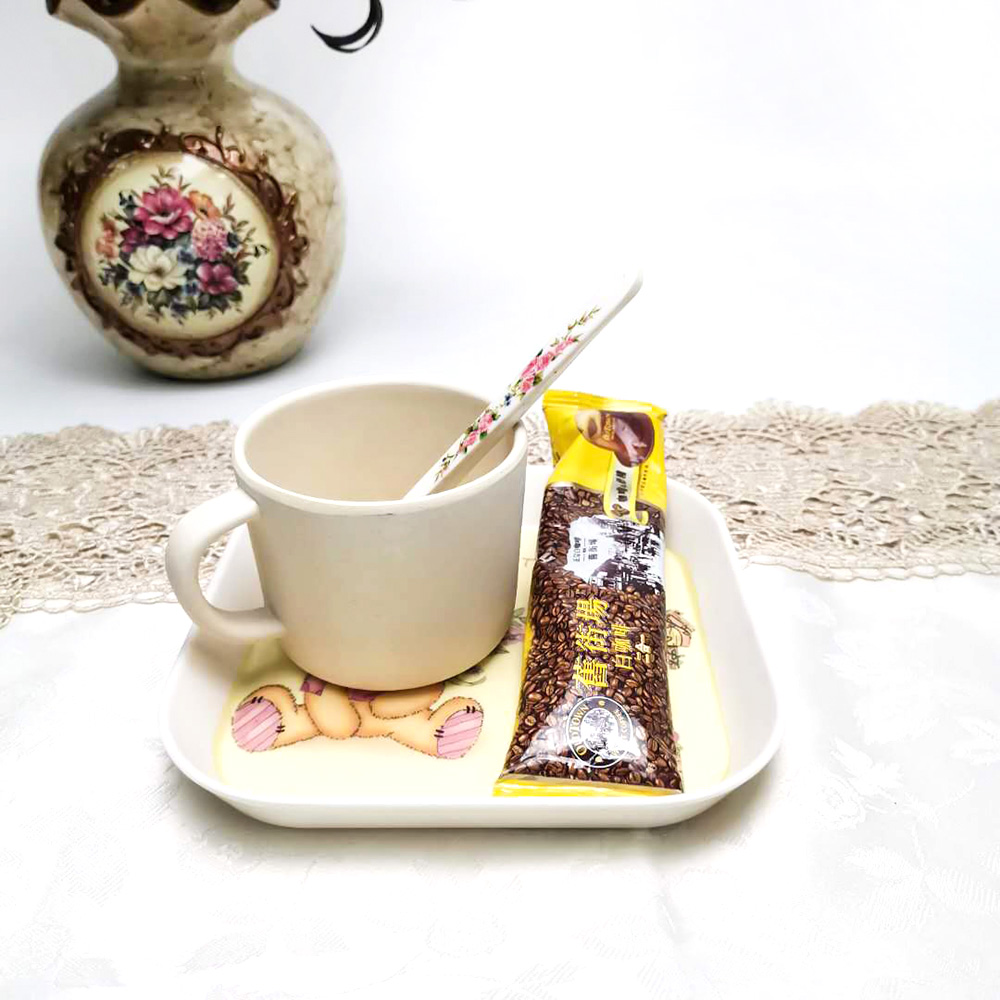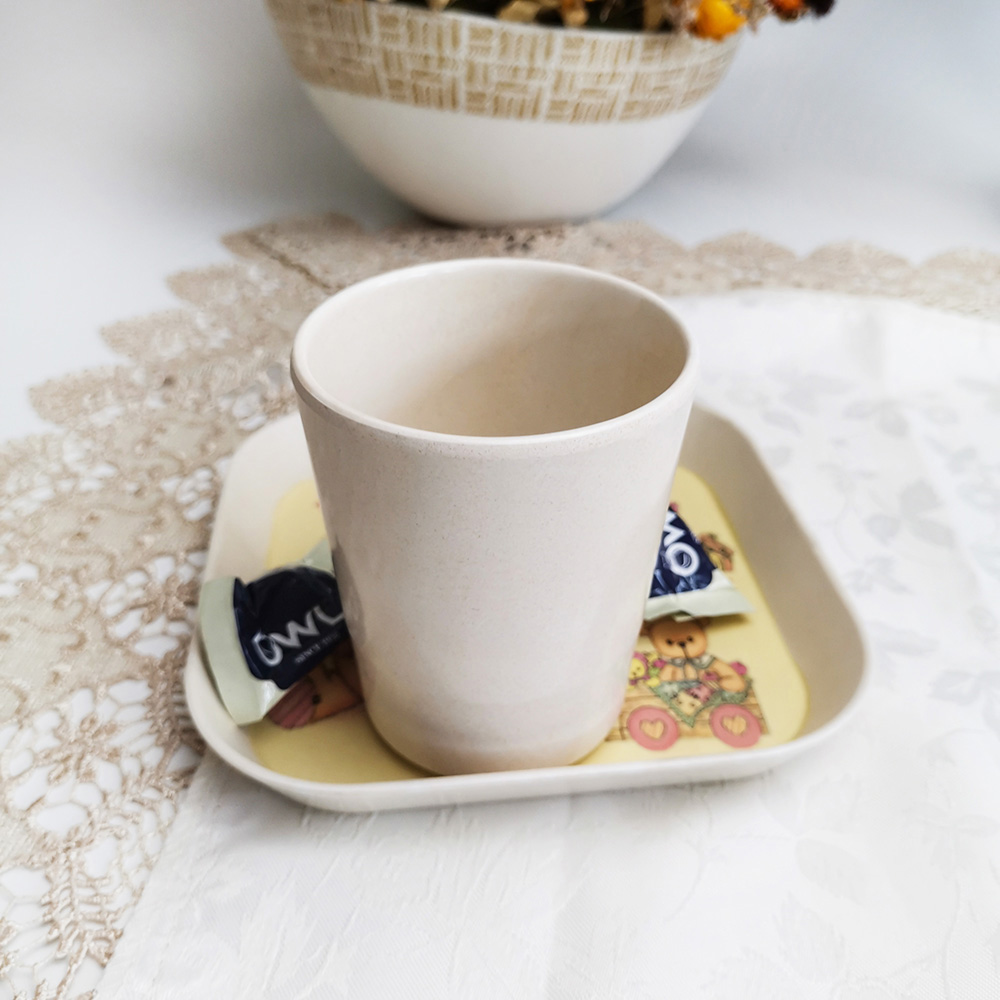When it comes to selecting dinnerware for children, safety is always a top priority for parents. With concerns about chemicals leaching into food and the risk of breakage, many parents seek alternative options to traditional plastic or glass cups. Melamine cups have emerged as a popular choice due to their durability, lightweight, and vibrant designs. But are melamine cups a safer option than plastic or glass for children? In this article, we will explore the characteristics of melamine cups, their potential safety concerns, and whether they are a suitable choice for children.
Understanding Melamine Cups:
Melamine cups are made from melamine resin, a type of thermosetting plastic that is known for its durability, heat resistance, and lightweight properties. Melamine resin is formed by combining melamine, a white crystalline powder, with formaldehyde and other chemicals to create a hard, durable material that can withstand high temperatures and repeated use. Melamine cups are available in a wide range of colors, patterns, and designs, making them popular choices for children's dinnerware.
Benefits of Melamine Cups:
Durability: One of the key benefits of melamine cups is their durability. Melamine resin is highly resistant to breaking, chipping, and shattering, making melamine cups ideal for use in busy households with young children. Unlike glass cups, which can break if dropped or knocked over, melamine cups are lightweight and virtually unbreakable, reducing the risk of accidents and injuries.
Lightweight: Melamine cups are lightweight and easy for children to handle, making them suitable for use at home, school, or on the go. The lightweight design of melamine cups also makes them ideal for outdoor dining and picnics, where traditional glass cups may be impractical or unsafe.
Heat Resistance: Melamine cups are heat resistant and can withstand high temperatures without warping or melting. This makes them suitable for use with hot and cold beverages, as well as for use in the microwave or dishwasher. However, it's important to note that while melamine cups are heat resistant, they should not be used to heat food or beverages in the microwave for prolonged periods, as this can cause the material to degrade and potentially leach chemicals into food.
Variety of Designs: Melamine cups are available in a wide range of colors, patterns, and designs, making them appealing to children of all ages. From bright and colorful designs featuring cartoon characters and animals to more sophisticated patterns suitable for older children and adults, melamine cups offer options to suit every taste and preference.
Safety Concerns with Melamine Cups:
While melamine cups offer several benefits, there are also some safety concerns associated with their use, particularly when it comes to potential chemical leaching. Melamine resin has been found to release small amounts of melamine and formaldehyde when exposed to high temperatures, acidic foods, or acidic beverages. Both melamine and formaldehyde are chemicals that have been linked to potential health risks in humans, including kidney damage and cancer.
To mitigate the risk of chemical leaching from melamine cups, it is important to follow these safety guidelines:
Do Not Microwave: Avoid using melamine cups to heat food or beverages in the microwave, as this can cause the material to degrade and potentially leach chemicals into food. Instead, transfer hot liquids to a microwave-safe container before heating, and allow them to cool before transferring them back to the melamine cup.
Hand Wash Only: While melamine cups are dishwasher safe, hand washing is recommended to prolong their lifespan and reduce the risk of chemical leaching. Use mild dish soap and warm water to clean melamine cups, and avoid using abrasive cleaners or scrubbing pads that could scratch the surface of the cup.
Avoid Acidic Foods and Beverages: Acidic foods and beverages, such as citrus fruits, tomato-based sauces, and acidic juices, can increase the likelihood of chemical leaching from melamine cups. To minimize exposure to potentially harmful chemicals, avoid storing acidic foods or beverages in melamine cups for extended periods and rinse them thoroughly after use.
Replace When Damaged: Inspect melamine cups regularly for signs of wear and tear, such as cracks, chips, or scratches. Damaged cups may be more prone to chemical leaching and should be replaced promptly to ensure the safety of your child.
Conclusion:
In conclusion, melamine cups offer several benefits as a durable, lightweight, and versatile option for children's dinnerware. However, it is important to be aware of potential safety concerns associated with their use, particularly the risk of chemical leaching from the melamine resin. By following safety guidelines, such as avoiding microwaving, hand washing, avoiding acidic foods and beverages, and replacing damaged cups, parents can help minimize the risk of exposure to harmful chemicals and ensure the safety of their children. Ultimately, whether melamine cups are a safer option than plastic or glass for children depends on individual preferences and priorities, as well as adherence to proper usage and safety guidelines.


 English
English 中文简体
中文简体 Español
Español








 No.8 Sanying Road, Jiangnan Street, Linhai City, Zhejiang, China
No.8 Sanying Road, Jiangnan Street, Linhai City, Zhejiang, China
 +86-13676659266
+86-13676659266 0576-85959968
0576-85959968
